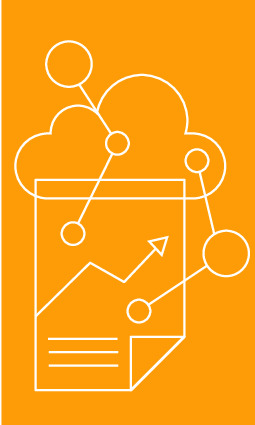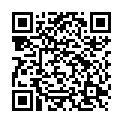Recommended or required reading:
Basic literature will be compiled according to the respective topic. In-depth literature research is required and is an integral part of the course.
Sample literature (marketing project in the field of sustainability):
Adeola, O. et. Al. (2021), Green Marketing in Emerging Markets Strategic and Operational Perspectives, 1. Auflage, Springer Nature Switzerland AG, Cham, Switzerland.
Ahlert, D. et. Al. (Hrsg.) 2011, Corporate Social Responsibility Determinaten der Wahrnehmung, Wirkungsprozesse und Kosequenzen, 1. Auflange, Gabler, Wiesbaden.
Backhaus, K. & Schneider, H. (2020), Strategisches Marketing, 3. Auflage, Schäffer-Poeschel Verlag, Stuttgart.
Buchholtz, A. (2017), The Institutionalization of Corporate Social Responsibility Reporting, Business & Society, 56(8), 1107-1135.
Bürer, M. (2007), Social acceptance of renewable energy innovation: An introduction to the concept, Elsevier, Energy Policy, 35 (February), 2683-2691.
Casais, B. & Soares, A. (2022) Uniting Marketing Efforts for the Common Good A Challenge for the Fourth Sector, Springer Nature Switzerland AG, Cham, Switzerland.
Celik, A. & Kalka, R. (2022), Die Abgrenzung, Eingliederung und Umsetzung des Corporate Purpose im Marketing, Forschungsberichte des Fachbereichs Wirtschaftswissenschaften der Hochschule Düsseldorf, erreichbar unter: https://doi.org/10.20385/opus4-3958 . Abruf am 09.04.2024.
Christensen, L. (2002), Corporate communication: the challenge of transparency, International Journal, 7 (3), 162-168.
Dütschke, E. & Kratschmann M. (2021), Selling the sun: A critical review of the sustainability of solar energy marketing and advertising in Germany.
Fifka, M. (Hrsg.) 2014, CSR und Reporting Nachhaltigkeits- und CSR-Berichterstattung verstehen und erfolgreich umsetzen, 1. Auflage, Gabler, Wiesbaden.
Fordon, A. (2018), Die Storytelling-Methode Schritt für Schritt zu einer überzeugenden, authentischen und nachhaltigen Marketing-Kommunikation, 1. Auflage, Gabler, Wiesbaden.
Fryer, B. (2003), Storytelling That Moves People, Harvard Business Review, erreichbar unter: https://hbr.org/2003/06/storytelling-that-moves-people. Abruf am 09.04.2024
Fuxman, L. et. Al. (2022), The new 3Ps of sustainability marketing: The case of fashion, Elsevier, Sustainable Production and Consumption 31, 384-396.
Griese, K.-M. (Hrsg.) 2015, Nachhaltigkeitsmarketing Eine fallstudienbasierte Einführung, 1. Auflage, Gabler, Wiesbaden.
Grunert, G. (2019), Methodisches Content Marketing Erfolgreich durch systematisches Vorgehen, integriertes Arbeiten und klare ROI-Orientierung, 1. Auflage, Gabler, Wiesbaden.
Grunwald, G. & Schwill, J. (2022), Nachhaltigkeitsmarketing Grundlagen Gestaltungsoptionen Umsetzung, 1. Auflage, Schäffer-Poeschel Verlag, Stuttgart.
Heinrich, P. (Hrsg.) 2018, CSR und Kommunikation Unternehmerische Verantwortung überzeugend vermitteln, 2. Auflage, Gabler, Wiesbaden.
Meckel, M. & Schmid, B. (Hrsg.) 2008, Unternehmenskommunikation Kommunikationsmanagement aus Sicht der Unternehmensführung, 2. Auflage, Gabler, Wiesbaden.
Mishra, P. & Sharma, P. (2014), Green Marketing: Challenges and Opportunities for Business, BVIMR Management, 7 (1), 78-86.
Mitra, N. & Schmidpeter, R. (2024), Implementing Environmental, Social and Governance (ESG) Principles for Sustainable Businesses A Practical Guide in Sustainability Management, 1. Auflage, Springer Nature Switzerland AG, Cham, Switzerland.
Nygaard, A. (2024), Green Marketing and Entrepreneurship, 1. Auflage, Springer Nature Switzerland AG, Cham, Switzerland.
Piwinger, M. & Zerfass, A. (Hrsg.) 2007, Handbuch Unternehmenskommunikation, 1. Auflage, Gabler, Wiesbaden.
Rogée, L. (2020), Bachelorarbeit - Purpose Driven Marketing als Differenzierungsmerkmal der Zukunft, Hochschule Macromedia für angewandte Wissenschaften, University of Applied Sciences, Stuttgart.
Schach, A. (Hrsg.) 2017, Storytelling Geschichten in Text, Bild und Film, 1. Auflage, Gabler, Wiesbaden.
Schmidpeter, R. & Schneider, A. (Hrsg.) 2015, Corporate Social Responsibility Verantwortungsvolle Unternehmensführung in Theorie und Praxis, 2. Auflage, Gabler, Wiesbaden.
Stang, A. (2020), Purpose Driven-Marketing Marketing-Hype oder langfristiges Erfolgskonzept, Marketing Review St. Gallen, 37 (4), 18-23.
Thier, K. (2017), Storytelling Eine Methode für das Change-, Marken-, Projekt- und Wissensmanagement, 3. Auflage, Springer-Verlag GmbH, Berlin Heidelberg.
Weigand, H. (2022), Green Marketing Das Zukunftsthema Nachhaltigkeit erfolgreich managen, 2. Auflage, Haufe Group, Freiburg.
Woeckener, B. (2007), Strategischer Wettbewerb Marktökonomische Grundlagen, Produktdifferenzierung und Innovation, Springer-Verlag, Berlin Heidelberg.
Wong, A. & Yazdanifard, R. (2015), The Review of Content Marketing as a New Trend in Marketing Practices, International Journal of Management, 9 (September), 1055-1064.
Project management literature:
- Andler, N. (aktuellste Auflage): Tools für Projektmanagement, Workshops und Consulting: Kompendium der wichtigsten Techniken
und Methoden, Publicis, Erlangen
- Verzuh, E. (aktuellste Aufl.): The Fast Forward MBA in Project Management, Wiley, Hoboken.
[updated 30.06.2024]
|


